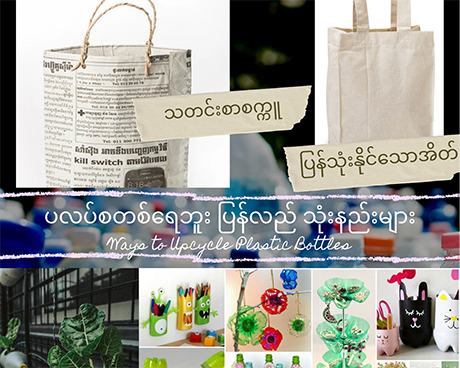
As a culminating activity in Chemistry, students watched a National Geographic video about the chemical makeup of plastic and the plastic manufacturing process, which explains the reason why it takes hundreds of years to decompose. Students also found out from research that when plastics end up in open landfills, they emit greenhouse gases such as methane. This greenhouse gas leads to global warming which causes ocean acidification. On the other hand, plastics that end up on the local beaches harm marine species. For example, plastics prevent hatchlings from reaching the ocean threatening Myanmar’s dwindling turtle populations.
Students realized that although plastic pollution is a pervasive global issue, its solutions can be found at the local and national level. They also recognized that the plastic problem can be traced back to their households, thus, they should be part of the collective effort to solve this bigger environmental problem.
It is for this reason that the classes designed and created social media campaigns to inform the public about the plastic issue in Myanmar and its impact to the environment particularly on marine ecosystems. The campaigns were written using Myanmar’s national language and with English subtitles. Prior to the campaigns, there was a class discussion online via Zoom which focused on examining plastic use in the country in various lenses or perspectives (i.e., socio-cultural, economic, political).
Lastly, students reflected about their biggest takeaway from this activity. Below are reflection statements gathered from some students:
“The solution to this crisis starts from an individual making a difference. I will endeavor to become this individual.”
“This left an impact on me and showed me that it is important that we, as global citizens, should all try to minimize the issue. What we do to contribute seems very small, but over time, the effects are astronomical.”
“It encourages me to stop using single use plastics and encourage those around me as well.”
“I found that some people still object and rationalize the action of using plastic by stating the demands.”
“I was surprised by how ill-informed and complacent the people and community were of such an issue that could affect people for generations to come.”
“I will start small and eventually build up to living an eco-friendly life.”
“It made me feel that our country as a whole needs a lot of help from us. We have the responsibility to keep our community clean and I will do differently by starting to reduce plastic usage in my home.”